Tough Guys Don't Dance Blu-ray Movie
HomeTough Guys Don't Dance Blu-ray Movie 
Vinegar Syndrome | 1987 | 110 min | Rated R | Sep 28, 2021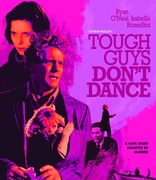
Movie rating
5.7 | / 10 |
Blu-ray rating
| Users | 0.0 | |
| Reviewer | 4.5 | |
| Overall | 4.5 |
Overview
Tough Guys Don't Dance (1987)
Based on his novel, Norman Mailer adapted and directed this film of mystery and murder. An alcoholic ex-con/writer finds himself implicated in murderous plots but cannot seem to remember much. He sets out to investigate the case on his own. Featured are performances by Ryan O'Neal, Isabella Rossellini, Debra Sundland and Lawrence Tierney.
Starring: Ryan O'Neal, Isabella Rossellini, Debra Stipe, Wings Hauser, John Bedford LloydDirector: Norman Mailer
| Mystery | 100% |
| Surreal | 100% |
| Dark humor | Insignificant |
| Crime | Insignificant |
| Drama | Insignificant |
| Thriller | Insignificant |
Specifications
Video
Video codec: MPEG-4 AVC
Video resolution: 1080p
Aspect ratio: 1.85:1
Original aspect ratio: 1.85:1
Audio
English: DTS-HD Master Audio 2.0 (48kHz, 24-bit)
English: Dolby Digital 2.0 (320 kbps)
Subtitles
English SDH
Discs
Blu-ray Disc
Single disc (1 BD)
Playback
Region A (B, C untested)
Review
Rating summary
| Movie | 2.5 | |
| Video | 4.5 | |
| Audio | 4.0 | |
| Extras | 5.0 | |
| Overall | 4.5 |
Tough Guys Don't Dance Blu-ray Movie Review
Reviewed by Brian Orndorf September 4, 2021Before its theatrical release, 1987’s “Tough Guys Don’t Dance” was marketed as an event from writer/director Norman Mailer, returning to filmmaking after 17-year absence, adapting his own successful book. After the feature’s release, “Tough Guys Don’t Dance” was suddenly regarded as high camp, with Mailer himself owning the endeavor as some kind of dark comedy. It’s difficult to believe Mailer originally had something wacky in mind with this movie, but he certainly ended up with something uniquely confident in suspect creative decisions, offering a messy slice of detective fiction that occasionally transforms into “Twin Peaks,” only without David Lynch’s masterful control of the abstract. Mailer is up to something with the project, but he’s not interested in letting viewers join him.
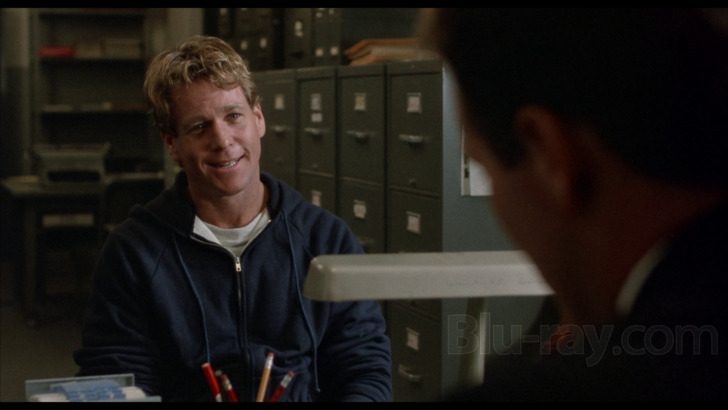
Stuck in a toxic life, Tim (Ryan O’Neal) struggles with the absence of his true love, Madeleine (Isabella Rossellini), dealing with troubles caused by his unstable wife, Patty (Debra Sandlund). After diving into a lengthy bender to ignore his problems, Tim awakens with a tattoo on his arm and blood in his car, facing interest from Chief Regency (Wings Hauser), a new man in town who learns to love intimidating Tim. When a severed head is left in his marijuana stash, Tim become panicked, realizing that someone is trying to get to him, leaving him with a community of suspects to meet and monitor.
“Tough Guys Don’t Dance” is intended to be a puzzle. What Mailer ultimately offers is a collection of pieces that are meant to create a final image, but most are poorly cut, unable to snap into place, while a few are from entirely different puzzles. There appears to be a major difference between the original screenplay and the final cut, as the filmmaking come across desperate to hold the endeavor together, offering vague voiceover from Tim to keep the plot within reach, and there’s time spent with Dougy (Lawrence Tierney), Tim’s father, who’s returned to ride out his cancer fight with his son, listening to his woes. This storytelling device allows the picture to transform a seemingly straightforward tale of danger into a series of flashbacks and memories, giving Mailer license to defend the work as “dream logic” when it merely comes across as an effort that lost it way during production, requiring editorial fixes that didn’t take.
“Tough Guys Don’t Dance” gives Mailer a chance to create his own take on noir, launching a story that explores the dangerous residents and visitors of Provincetown, Massachusetts. Tim is the main character, but he’s merely pinballing his way around the lunatics in his life as elements of drugs, drink, sex, suspicion, and murder arrive to complicate his living situation. “Tough Guys Don’t Dance” doesn’t stand down from oddity, as Mailer encourages exaggeration to make the material stand out, giving the actors plenty of chewy dialogue to share and thespian choices to make, with most going red-hot with extremity to sell the insanity. This commitment is something to behold, almost making the feature palatable as emotional volatility overrides turns of plot, making the viewing experience more about freak-outs and strange creative choices than a snowballing level of peril for Tim, finding O’Neal quickly overshadowed by his more flamboyant co-stars.
Tough Guys Don't Dance Blu-ray Movie, Video Quality 
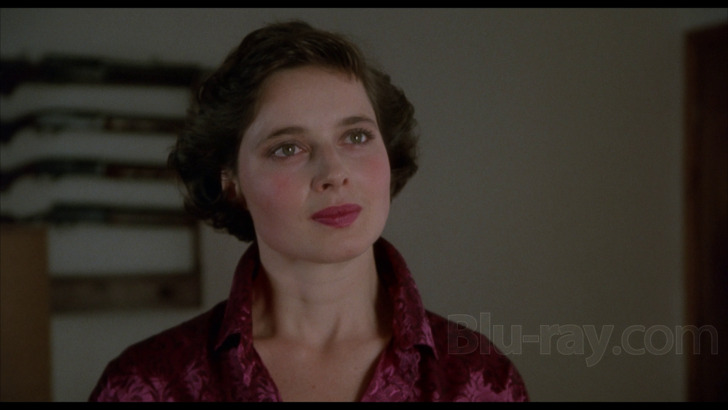
The AVC encoded image (1.85:1 aspect ratio) presentation for "Tough Guys Don't Dance" is sourced from a 2K scan of the 35mm interpositive. Colors emerge as intended, with cooler hues for exterior tours, and hotter lighting for interiors, such as bars and homes. Costumes offer varied looks at professionals and partygoers, and greenery is satisfactory, capturing the feel of the Provincetown locations. Detail explores weathered faces, securing skin particulars. Costuming is also fibrous, and interiors are dimensional. Exterior tours of beaches retain distance. Grain is fine and film-like. Delineation is satisfactory. Source is in good condition.
Tough Guys Don't Dance Blu-ray Movie, Audio Quality 
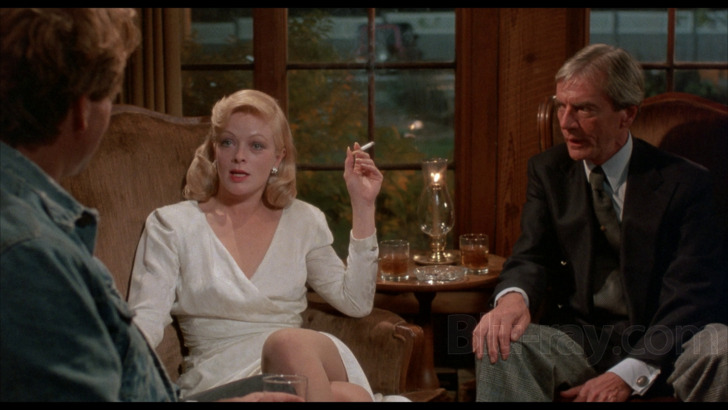
The 2.0 DTS-HD MA mix runs a bit hotter than expected, with soundtrack cuts during party scenes louder, threating a few lines in the process, which may be an intentional creative choice. Dialogue exchanges are sharp, capturing volatile performances from a range of exaggerated accents. Scoring supports comfortably, with decent instrumentation. Atmospherics are active with crashing waves and room tone.
Tough Guys Don't Dance Blu-ray Movie, Special Features and Extras 
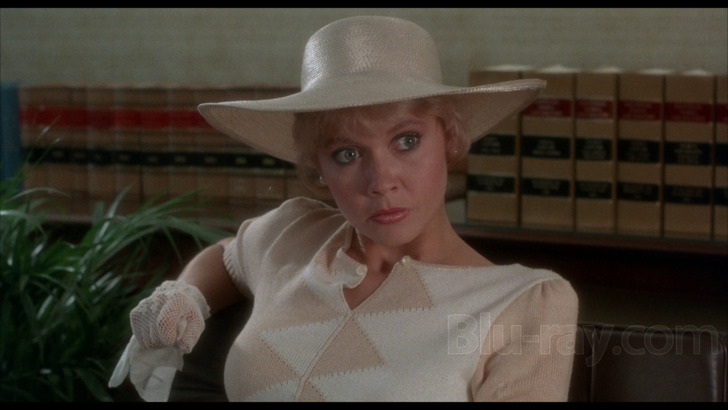
- Commentary features film historian Justin Bozung.
- "Shooting in Helltown" (16:39, HD) is an interview with cinematographer John Bailey, who was credited as the "visual consultant" for "Tough Guys Don't Dance." The erudite interviewee describes his respect for writer/director Norman Mailer and his experience working with the man, who was interested in the filmmaking process, collaborating with Bailey on the visual approach to the feature. Talk of character psychology is shared, along with actor experiences, with Wings Hauser sometimes in too deep with his method acting. The Provincetown location was Mailer's secret weapon, knowing the area quite well, finding different ways to bring out the flavors of the town. Bailey seems to appreciate "Tough Guys Don't Dance," and while he discusses a few bad ideas Mailer couldn't be talked out of, he's ready to analyze the themes and atmosphere of the endeavor, dissecting the "cult prominence" of the material.
- "You Don't Have to Make Me Any Nuttier" (16:55, HD) is an interview with actor Wings Hauser who, after introducing himself by listing his height and weight, goes into his early career ambitions and life as a young man, where he grew up living next door to Bob Denver and his exotic animals. Hauser explores the reading process for "Tough Guys Don't Dance," growing frustrated with Norman Mailer's indecisive ways, and he reveals their tensions during the shoot, with the pair coming to blows. Provincetown provided strange adventures for Hauser, and he offers memories of his co-stars, remaining very kind to Ryan O'Neal. The interviewee closes with a description of his acting style, where he gives a very Wings Hauser-like answer.
- "A Crazy, Wild, Spooky Movie" (15:57, HD) is a video conference interview with Norman Mailer biographer, J. Michael Lennon. After writing a letter to Mailer as a young man, Lennon was brought into the author's inner circle, earning his trust while tracking the evolution of his career. Lennon examines the unexpected success of the "Tough Guys Don't Dance" novel, and its journey to the screen, finding Mailer enjoying the directorial process, but refusing to collaborate on the writing, resulting in many filmmaking errors. The interviewee visited the set, and he describes his time with the actors and Mailer's use of Provincetown. The release of "Tough Guys Don't Dance" inspired a sharp divisiveness concerning the quality of the movie, which Mailer seemed to enjoy, even revisiting the picture just before his 2007 death.
- "Norman Mailer in Provincetown" (29:46, SD) is a 2003 discussion of "Tough Guys Don't Dance" with the writer/director, who jumps into the creation of the original novel, exploring creative challenges before receiving a movie deal to bring the work to the big screen. Mailer offers an assessment of Provincetown atmosphere and history, and he dives deep into casting, working through most of the ensemble, including Ryan O'Neal, who was personally offended that the infamous "Oh man, oh god!" scene remained in the finished film. Cinematography is celebrated, and Mailer details the differences between making books and features.
- "My Dad in Motion" (5:52, HD) is a brief video conference chat with Michael Mailer, Norman Mailer's son. In college when "Tough Guys Don't Dance" was shooting, Michael tried to visit the set often, watching his father enjoy the process and use Provincetown in his own special way. Michael is high on "Tough Guys Don't Dance," declaring that "some people love it, and some people just don't get it."
- A Theatrical Trailer (1:55, HD) is included.
Tough Guys Don't Dance Blu-ray Movie, Overall Score and Recommendation 
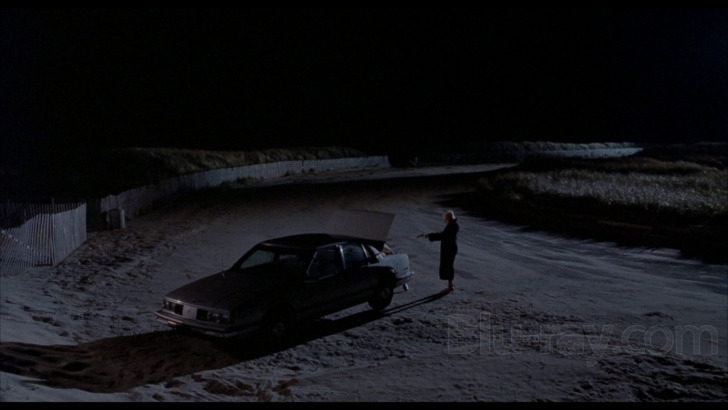
It's easy to define "Tough Guys Don't Dance" as a mess with plenty of creative blunders from Mailer, including the infamous "Oh god, oh man!" line reading from O'Neal, which remains the high point of unintentional comedy in the movie. Mailer's defenders claim the film is a misunderstood masterpiece, presenting memorable moments and a specialized take on noir traditions. They say that if one doesn't admire the picture, they don't get the picture. Perhaps that's true, but one of the key elements of detective fiction is the desire to reach a resolution, to see whodunit and why. "Tough Guys Don't Dance" doesn't have the gravitational pull, as Mailer is too entranced by oddity to really nail the criminal aspects of the material, and his visitations to surrealism are poorly executed, possibly engineered in the editing room to make something meaty out of a run of shallow encounters and disasters.
Similar titles
Similar titles you might also like

Never Take Candy from a Stranger
1960

Live Like a Cop, Die Like a Man
1976

Ms .45
1981

Strange Confession
1945

Blood on Her Name
2019

The In Crowd
2000

Child of God
2013

Girls Against Boys
2012

Into the Ashes
2019

The Klansman
Klansman / The Burning Cross / KKK
1974

Jack the Ripper
Standard Edition
1959

Hemlock Grove: The Complete First Season
2013

Point of Terror
Blood on the Point of Terror
1971

The Prowler
Rosemary's Killer
1981

My Bloody Valentine 4K
Collector's Edition | Uncut Version 4K + BD / Theatrical Version BD
1981

The Terror
Special Edition | Includes The Little Shop of Horrors
1963

10 to Midnight
Collector's Edition
1983

Carnage Park
2016

The Texas Chainsaw Massacre 2 4K
with exclusive Hard Case w/Slipcover only on VS retailer site
1986

We Are What We Are
2013
